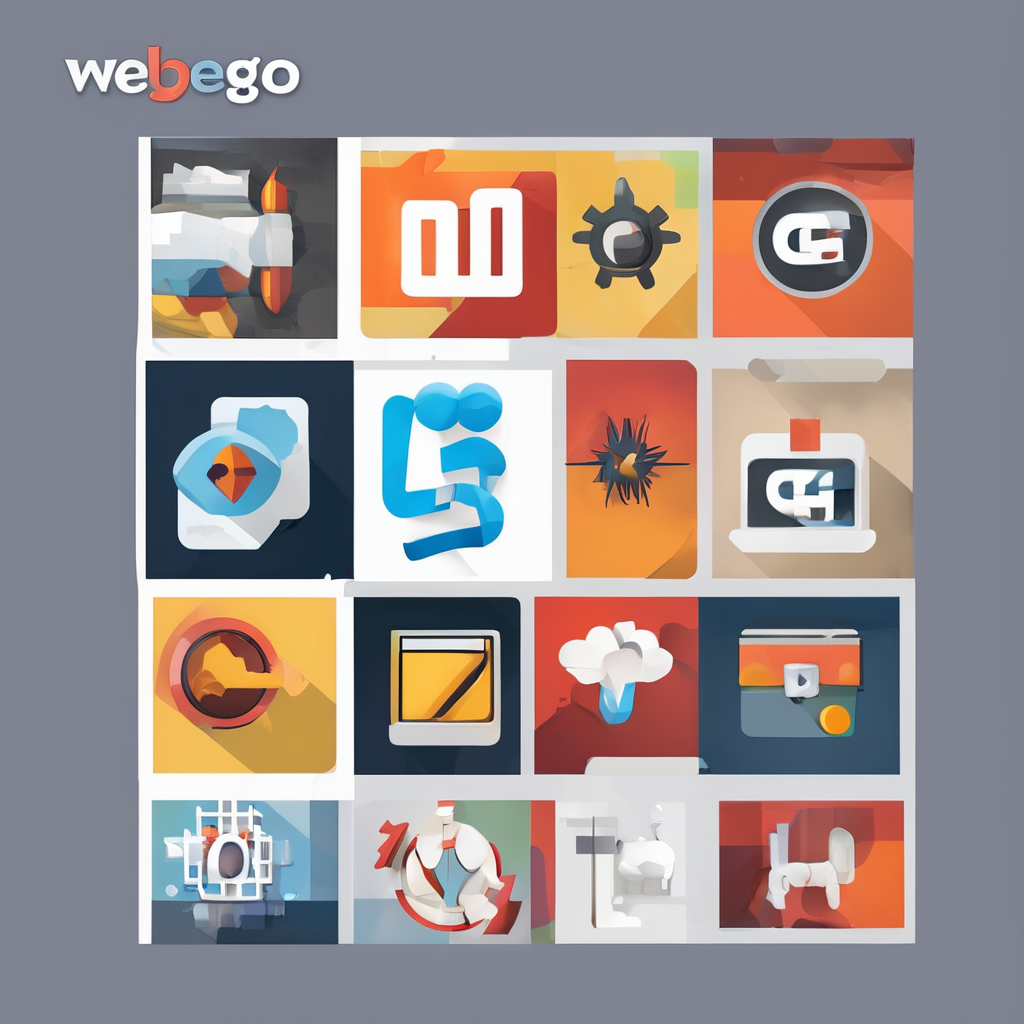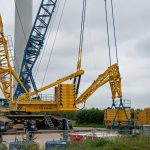How Is Artificial Intelligence Transforming Hiring Practices in Tech Today?
The tech talent shortage intensifies annual challenges for companies worldwide, with McKinsey 2025 research revealing that 87% of organizations struggle to fill specialized technical roles using traditional methods. Artificial intelligence in recruitment processes is revolutionizing how companies discover exceptional talent from unconventional sources like research papers, patent databases, and open-source communities. Platforms like Kirha exemplify this transformation, helping enterprises find ai recruitment solutions that unlock hidden technical expertise beyond conventional hiring channels.
What Are the Main Benefits of AI Recruiting Tools for Technical Talent Discovery?
Artificial intelligence in recruitment processes offers transformative advantages that extend far beyond traditional hiring methods, particularly when seeking technical talent from unconventional sources. Here are the comprehensive benefits that modern companies are experiencing:
Additional reading : What strategies do UK companies use to foster innovation in management?
- Automated talent acquisition from research communities – AI systems can scan thousands of academic papers, patent filings, and research publications to identify brilliant minds who may not have traditional corporate experience but possess cutting-edge technical expertise
- Machine learning algorithms for candidate matching – These sophisticated systems analyze coding patterns, research contributions, and open-source project involvement to predict candidate success with remarkable accuracy
- Enhanced discovery speed – What traditionally took recruiters weeks of manual searching now happens in hours, allowing companies to reach top talent before competitors
- Intelligent hiring solutions that eliminate human bias – AI evaluates candidates purely on technical merit and potential, creating more diverse and qualified talent pools
- Patent and open-source project analysis – Advanced AI tools can identify developers and researchers based on their innovative contributions to patents, GitHub repositories, and collaborative technical projects
- Cost reduction of up to 70% in technical hiring processes while simultaneously improving candidate quality and retention rates
- Access to hidden talent pools – AI-powered recruitment solutions for companies can uncover exceptional technical professionals who aren’t actively job searching but represent ideal cultural and technical fits
How Does Machine Learning Transform Traditional Candidate Screening?
Traditional recruitment methods often miss exceptional talent hiding in plain sight within academic publications, open-source projects, and patent databases. How artificial intelligence is transforming hiring practices becomes evident when examining how modern screening systems venture beyond conventional resume parsing. These intelligent platforms analyze research papers to identify authors who demonstrate cutting-edge expertise in emerging technologies, even when these individuals haven’t actively sought new opportunities.
Consider how automated recruitment systems capabilities recently helped a fintech startup discover their lead blockchain developer through patent analysis rather than LinkedIn searches. The algorithm identified someone who had published groundbreaking research on cryptocurrency security protocols but worked in academia. Similarly, GitHub contribution analysis reveals developers whose code quality and innovation far exceed what traditional screening might capture from their formal work history.
Also read : Essential month-end close best practices for financial success
These systems excel at connecting seemingly unrelated dots across different platforms and publications. A candidate might have authored influential papers in machine learning journals, contributed to critical open-source libraries, and hold patents in related fields. Traditional screening would likely miss these connections, but intelligent processing creates comprehensive talent profiles that reveal true expertise depth. The technology transforms recruitment from reactive resume review into proactive talent discovery, uncovering professionals whose capabilities align perfectly with specific technical challenges.
Smart Analysis of Research Papers and Patents
The most innovative technical minds often remain hidden in academic and research communities, publishing groundbreaking work that never appears on traditional job boards. AI-powered recruitment solutions for companies are now revolutionizing talent discovery by diving deep into these untapped sources, analyzing thousands of research papers, patent filings, and academic publications to identify exceptional candidates with cutting-edge expertise.
This sophisticated approach goes far beyond keyword matching. Advanced algorithms examine the technical depth of research contributions, evaluate citation impact, and assess the innovation level of patent applications to build comprehensive talent profiles. When a researcher publishes breakthrough work in quantum computing or files patents for novel machine learning architectures, intelligent hiring solutions can immediately flag them as potential candidates for relevant technical roles.
The beauty of this method lies in its ability to discover talent before they even consider job searching. These candidates often possess rare, specialized skills that are in high demand but rarely found through conventional recruiting channels. By analyzing publication patterns, collaboration networks, and research impact metrics, companies can identify and engage with top-tier talent who might never have updated a LinkedIn profile or submitted a traditional job application.
Which Companies Successfully Use These Advanced Recruitment Approaches?
Leading technology companies have discovered remarkable results when implementing artificial intelligence in talent acquisition, particularly when sourcing from unconventional talent pools. These organizations are rewriting the playbook for technical hiring by looking beyond traditional platforms.
Spotify transformed their engineering recruitment by leveraging machine learning to identify contributors from open-source music and audio processing projects. Their talent acquisition team discovered that developers contributing to specialized audio libraries often possessed the exact skills needed for their streaming technology stack. This approach reduced their time-to-hire for senior engineering roles by 40% while significantly improving candidate quality scores.
Similarly, Tesla revolutionized their approach to finding automotive software engineers by scanning research publications and patent databases. Their recruitment team identified researchers working on autonomous vehicle algorithms at universities and research institutions worldwide. By targeting authors of cutting-edge automotive AI papers, they built a pipeline of candidates who were already pushing boundaries in their field, resulting in 60% faster onboarding times for complex technical positions.
Docker’s success story demonstrates how AI is transforming hiring practices for container technology specialists. Rather than competing for the same pool of candidates on LinkedIn, they analyzed GitHub contributions to containerization projects and identified maintainers of critical infrastructure tools. This strategy helped them discover senior architects who were actively solving real-world problems in their technology domain, leading to higher retention rates and faster project delivery times.
How to Choose the Right AI Recruitment Platform for Your Technical Needs?
Selecting the right platform requires understanding how artificial intelligence in recruitment processes can address your specific technical hiring challenges. The key lies in evaluating platforms based on their ability to discover talent beyond conventional databases and social networks.
Start by examining the platform’s data sources and analytical capabilities. The most effective solutions don’t just scrape LinkedIn profiles—they analyze research publications, patent filings, and open-source contributions to identify exceptional technical candidates who may not be actively job searching. Look for platforms that can parse complex academic papers or evaluate code contributions to assess real technical expertise rather than relying solely on keyword matching.
Integration capabilities matter significantly for your existing workflows. The platform should seamlessly connect with your current applicant tracking systems and provide APIs that allow custom implementations. Consider how the solution handles candidate scoring and whether its algorithms can be trained on your company’s specific technical requirements and cultural preferences.
Accuracy in candidate-role matching represents another crucial evaluation criterion. Test the platform’s ability to understand nuanced technical skills and distinguish between similar but distinct competencies. Companies like Kirha have demonstrated expertise in discovering hidden technical talent from research communities, showing how specialized approaches can uncover candidates that traditional methods miss entirely.
What Implementation Steps Ensure Successful AI Integration in Hiring?
Successfully implementing artificial intelligence in talent acquisition requires a methodical approach that goes beyond simply purchasing software. Tech companies must begin by conducting a comprehensive audit of their existing recruitment workflows to identify specific pain points where automation can deliver the most value. This foundation phase involves mapping current processes, documenting decision-making criteria, and establishing clear performance baselines that will later measure the system’s effectiveness.
The technical configuration phase demands careful calibration of machine learning algorithms for candidate matching to align with your organization’s unique requirements. Rather than accepting default settings, successful implementations involve training the system using historical hiring data while incorporating feedback from your most experienced technical recruiters. This collaborative approach ensures the AI understands nuanced requirements specific to your tech stack and company culture, particularly when sourcing talent from research communities and patent databases.
Team preparation proves equally critical to technical setup. Your recruitment staff needs hands-on training that covers both system operation and result interpretation. The most successful implementations create internal champions who can bridge the gap between AI recommendations and human judgment, especially when evaluating candidates discovered through non-traditional channels like open-source contributions or academic research publications.
Your Essential Questions About AI-Powered Technical Recruitment
How can artificial intelligence in recruitment processes help discover hidden technical talent?
Modern AI-powered recruitment solutions for companies analyze non-traditional sources like research papers, patents, and open-source contributions to identify exceptional technical candidates who aren’t actively job searching or visible on conventional platforms.
What makes AI recruiting tools more reliable than traditional screening methods?
Advanced algorithms evaluate actual technical contributions and research output rather than relying solely on resume keywords, providing deeper insights into candidates’ real capabilities and innovative potential in technical fields.
How much does implementing AI in talent acquisition typically cost for tech companies?
Investment varies significantly based on company size and requirements, but most platforms offer scalable pricing models. Many organizations see positive ROI within 3-6 months through reduced hiring time and improved candidate quality.
Can implementing artificial intelligence in talent acquisition integrate with existing HR systems?
Most modern platforms provide seamless integration with popular ATS systems and HR tools through APIs, allowing companies to enhance their current workflows without complete system overhauls or extensive technical modifications.
What types of non-traditional sources do AI systems access for technical talent discovery?
Advanced systems scan academic publications, patent databases, GitHub repositories, technical forums, and research communities to identify talented individuals who demonstrate expertise through their actual work rather than traditional applications.
How quickly can companies expect to see results from AI-driven recruitment platforms?
Most organizations begin receiving qualified candidate profiles within 2-4 weeks of implementation, with significant improvements in candidate quality and reduced time-to-hire becoming evident within the first quarter of usage.










